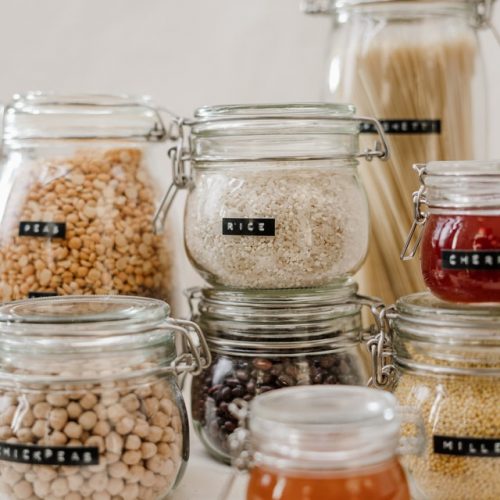Is there a place for protein powder in your diet?
Protein is fundamental to life and found in every cell of the body. It is used to create new cells for growth and to repair damaged tissues. Protein is a vital part of a healthy diet.
Protein rich foods include fish, meat, eggs, milk, cheese, beans and peas. Protein supplementation might be considered if your diet does not include those types of foods in significant quantities. This can apply to vegans or for someone who is cutting back on animal protein intake.
Athletes or very active people may also want to supplement with protein to ensure they have enough protein to build and repair damaged muscles after exercise.
There are plenty of recipes online for using protein powders to make your own healthy protein bars and protein balls. These are great for supporting your blood sugar if you have need to snack between meals or just want to increase the protein content of your diet.

Protein can be derived from many different sources and there are multiple types of protein powders. It’s good to know the benefits and drawbacks of these proteins so below is a summary of those available. I’ve also added links to protein powders that I recommend from Natural Dispensary (many come in other flavours). Up to 15% discount for clients only – code available on request.
Pea Protein: Usually made from dried yellow peas, pea protein powder is vegan, low in carbs and fat and a great source of essential amino acids. This is my protein powder of choice as a meal replacement. It is easily digested and mixes well with a not unpleasant taste.
Vital Protein Pea Protein Vanilla 500g
Clean Lean Protein Smooth Vanilla 500g
Hemp protein: Another protein powder that I would recommend – hemp is a wonder plant, containing all eight of the essential amino acids the body needs to stay healthy, as well as generous amounts of Omega 3 & 6 and plant fibre. It provides a complete and nutritious protein source. Hemp protein powder is ideal for vegetarians and vegans (who may be low in omega 3), athletes and people recovering from illness or those looking to balance their blood sugar. Hemp is one of the most sustainable, earth-friendly crops around and very often is organically grown.
Organic Hemp Protein Peak Protein
Rice protein: With a 98% correlation to mother’s milk and a 97% correlation with whey protein, rice protein is a readily-digested protein source, providing a good balance of essential amino acids. Often rice protein is made with raw sprouted brown rice which is very gentle on the stomach making it a good supplement to take before exercise if required. As well as protein brown rice contains B vitamins and fibre.
Sunflower protein: Although a bit lower in protein than some other products, sunflower protein has quite a pleasant taste and is good to use in meals to increase protein intake. For example if you like to eat porridge for breakfast but find that after a couple of hours you are hungry, you could stir in sunflower (after cooking – you will need to also add extra liquid) to increase the protein content. Sunflower seeds are a good source of vitamins, minerals and healthy fats.
Whey protein: This is the most commonly found protein powder, sold in gyms and health shops everywhere. There are various types of whey protein powder: Whey concentrate, Whey hydrosalate, Whey isolate which have all been processed to different degrees to make them lower in fat or easier to absorb. I am not a big fan of consuming dairy products from cows. Although whey protein is easier for us to digest than milk I still think that our bodies are not designed to have large amounts of dairy. Hydrosalate forms are less likely to be a problem if someone has a dairy intolerance but these powders can cause an unfavourable insulin response.
However, whey protein is very effective for recovery from hard exercise and can help with building muscles and supporting immune function. If you do choose to supplement with whey protein ensure that the product you use is from cows which are organic or grass fed.
Caseinate proteins: These are also derived from cow’s milk and come in various forms. They are less quickly absorbed than whey proteins and more likely to be a problem if someone is intolerant to dairy.
Soy protein: Soya protein is considered a complete protein, providing all of the essential amino acids that the body can’t make itself. It’s also proven to help in lowering cholesterol. However concerns over soy and its effects on hormones, its high levels of branch chain amino acids and high Glutamate content mean that I would not recommend this as a supplement.
Combined Sources
There are also protein powders that combine multiple sources:
Protein Shake Peanut Butter 12x25g